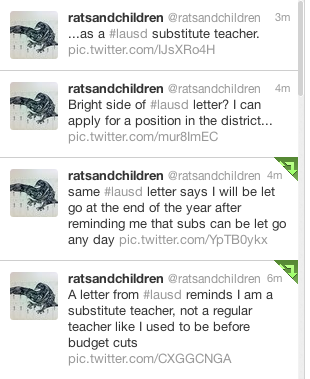
Yesterday, I learned about the intersection of race, class, and (in)justice in the American legal system.
The content was engaging and I felt, afterwards, ready to share my ideas and concerns with others. I felt like I was learning.
All of this happened during lunch. While watching a single twenty-three minute TED talk.
And in general, that’s great. Right?
Sure it is.
Only … the thing is… I already studied this topic as a graduate student. It was a two-quarter long course and at the end I’d read stacks and stack of books and written what felt like reams of paper on the nuances of the topic and after those 20 intense weeks of studying… I felt like I hadn’t even scratched the surface.
As the popularity of TED talks continues to grow, I sometimes feel like we are missing something in the truncated hyper-entertaining style. I don’t mean that I expect everyone to jump into full-on academic geekdom around a topic instead of watching a TED talk. However, I do wonder what is lost in the snappy medium.
In the Critical Media Literacy course I am currently co-teaching, we showed Chimamanda Adichie’s TED talk at the beginning of the quarter. It seems like her concerns of a “single story” have probably been invoked by my students on a weekly basis. But her concerns are invoked in passing; my students have not tussled with seeking additional knowledge about Adichie, her writing, or the political circumstances she discusses. Similarly, I’ve had numerous conversations with people about “the problem with schools” based solely on Sir Ken Robinson’s TED talk. While I find this talk, too, tremendously worthwhile, I tend to feel like we are locked out of creativity and personal opinion when most of our talking points are pinned to 15-20 minute talks.
I’ve had these sneaking suspicions about TED for a while, but I do want to make it clear that I appreciate much of the content and the vision of what TED represents. It’s not TED’s fault that it’s so popular. It’s more a problem that it’s so much easier to embed or like or share or forward a 15-20 minute talk (or 30 minute propaganda video) than look into the larger concerns.* Slacktivism (as recently mentioned in a post related to #kony2012).
I bring up this navel-gazing whining about TED and “Lunchtime Intellectuals” (did I just invent that? I hope so) because it is now directly impacting the teaching profession. Earlier this week TED announced TED-Ed:
An invitation to teachers across the world to help us dial up the effectiveness of video lessons. As an initial offering, we have posted a dozen lessons that we think show promise. And now we’re ready to assist teachers in creating hundreds more.
I guess that’s good, right?
And I really like John and Hank Green’s Crash Course videos that teach history and science via YouTube videos.
And I guess someone likes this Khan Academy thing.
All of these might be doing something somewhere. But I do know that, in the same week that more than 11,000 LAUSD teachers receive notices that they will be laid off at the end of this year, it feels uncomfortable to have organizations helping in ways that basically suggest ‘let’s throw a bunch of snappy videos your way… figure out the rest.’**
All too often, we tend to try to simplify the really (really) complex challenges that teachers are in. At the DML conference last week, I took issue with John Seely Brown’s keynote talk that tended to idealize the Montessori school system. Meryl Alper helps complicate this as well as point to an early-education blind spot in the DML community. This stuff is much more complicated than can be covered in an 18 minute ohhs-and-ahhs-filled video. This stuff is about our future and it’s about the youth in our schools and it–thus–deserves for us to try untangling it as a complicated mess.
It’s not that TED-Ed is a bad idea. I’m more concerned with the continued trend of non-educators being able to get high profile coverage for creating faux quick-fix solutions (or worse: another community to work on solutions) for deep-rooted inequity that’s been decades in the works.
*Like, for example, who funds Invisible Children’s work… but that’s a digression beyond the purview of this post.
** By the way, Peter tweeted reading and reacting to his annual RIF notice:

it had to be said. i’ve had the same conversations with friends, colleagues, students etc about robinson and have found myself, at the same time, both drawn in and suspicious of the too tightly packaged TED world.
lunchtime intellectuals! go hard!